Rijksmuseum 20th Century collection
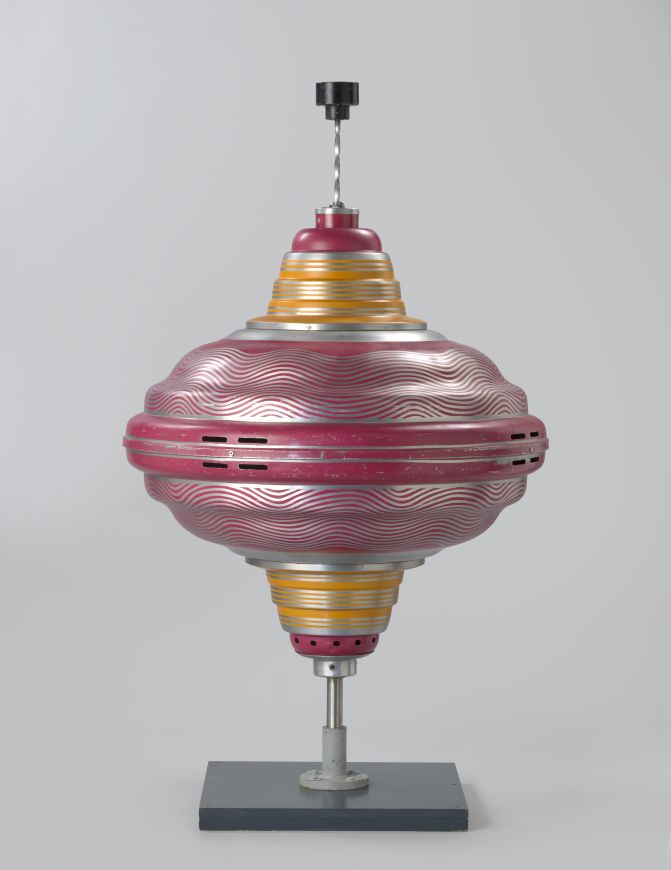
Giant Spinning Top in the RIJKSMUSEUM collection, 2024.
Design: Floris Guntenaar, Photo: Albertine Dijkema, Rijksmuseum
Spinning tops
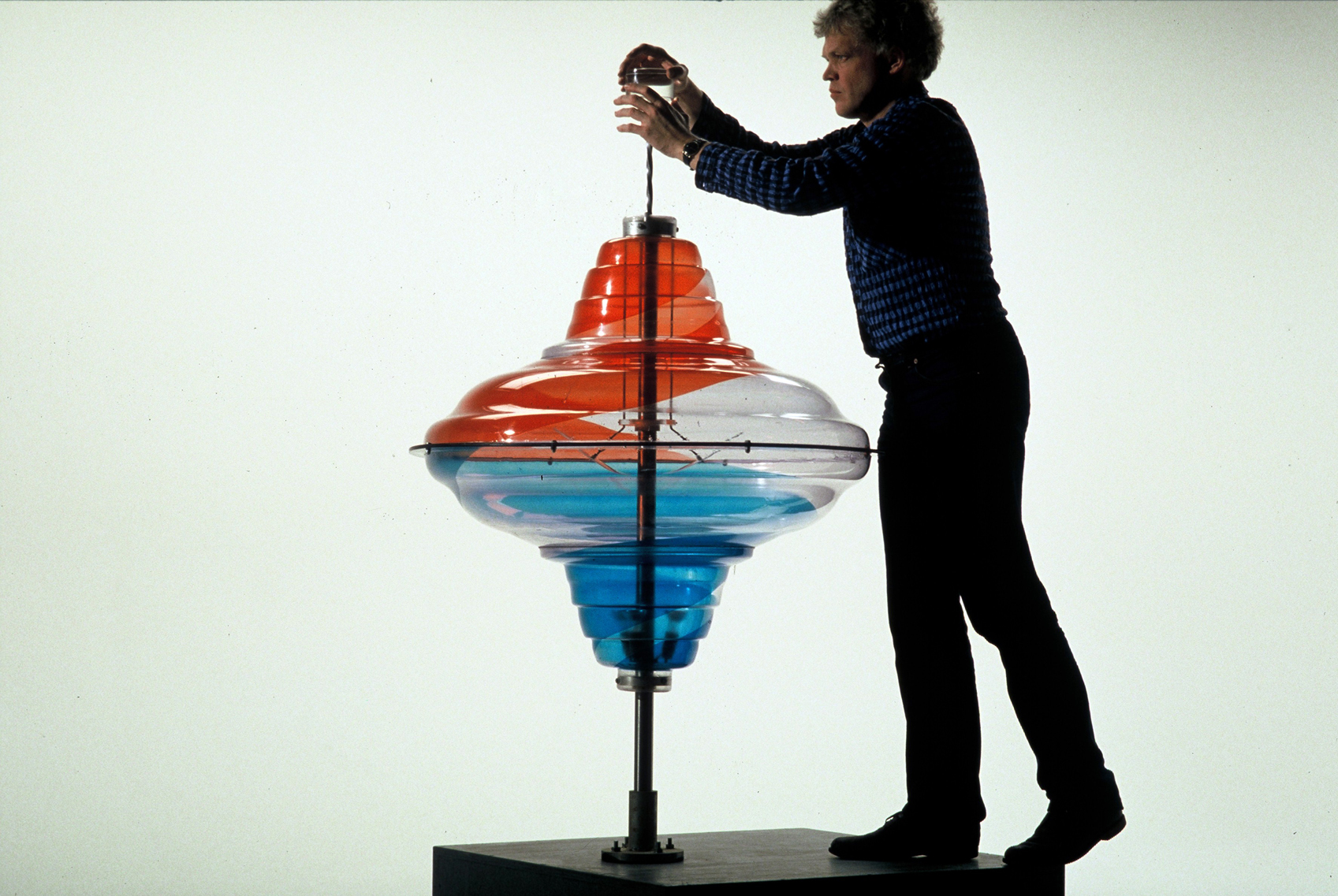
Transparant Top, 1987
Premiere 'To You'
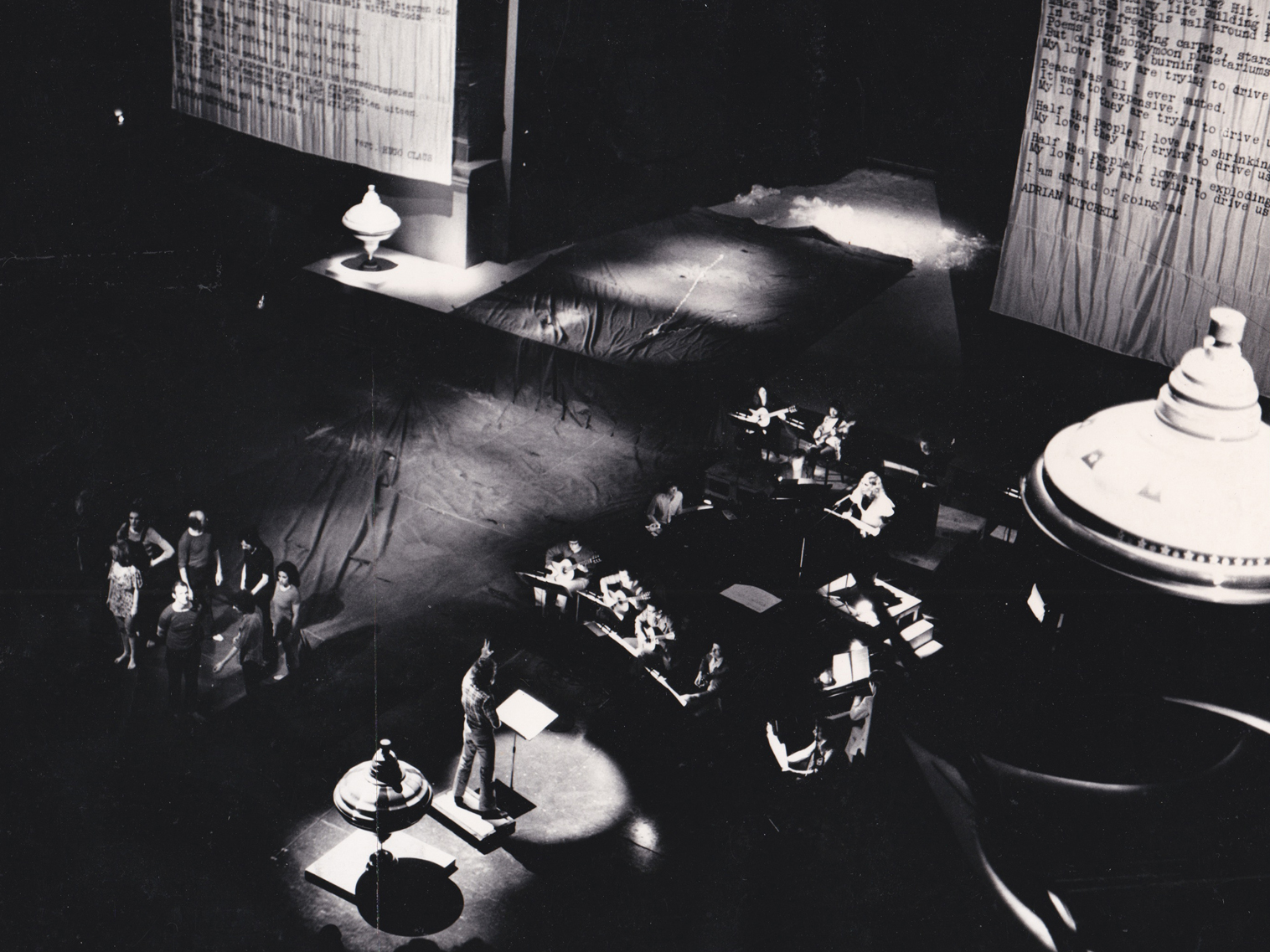
Premiere in the Royal Theatre Carré. June 20, 1972
By Ensemble AEC & Werktheater.
Photo: Holland Festival, Maria Austria
Vondelpark 1974
Open air performance in the Amsterdams Electrisch Circus
Vondelpark, Amsterdam
Gala 40 Years Dutch Music
Excerpt Gala 40 Years Dutch Music, VPRO 1987.
final 02.23 minutes
About 'To You'
This work is a typical example of the late 60's, early 70's (political) atmosphere in Amsterdam. It might have been the times of one of the largest generational gaps in history. The change from pre Second World War, Depression to the re-building of Europe in the 50's came to a head in the 60's and 70's in the form of friction and strive between the younger and older generations who saw the latter as one of destruction (pollution, Vietnam war, cold war in general, and etc.) and one of greed. The younger generations had some brief but quite influential movements, like the Beatniks in the US, the Provo in Amsterdam, the student revolt in France, Flower power pretty much everywhere in the West with San Francisco in the center. Those times are gone forever, lasted briefly and are difficult to comprehend by contemporary generations. To simply label them as "hippies" doesn't mean anything. At root they were hopeful that times were changing for the better for EVERYBODY on this planet, not just the elite and powerful.
Peter Schat* wrote To You because of the police confiscating guitars in the city of Amsterdam on a daily basis. Peter wrote:
"When people realized-partly because of me - the scale on which guitars were being nabbed, they were furious, and so of course was I.
Adrian Mitchell found the words as early as 1964, and I chose To You: MY LOVE, THEY ARE TRYING TO DRIVE US MAD.
'To You' had received awards from the Unesco and the City of Amsterdam in the meantime. For the presentation of the latter award - the 1973 Matthijs Vermeulen Prize - I asked for, and was grudgingly granted, permission to give a detailed explanation of the connection between the piece and the legal music thefts on the streets.
Jean-Marie van Bronkhorst (2022)
*)
"it was good to hear what Schat, a leading composer of our day by any standards, has lately been up to, and to attend a kind of music-drama seldom encountered in America"
Andrew Porter in the NEW YORKER, after visiting the Aspen Music Festival (1979) attending the opera 'Houdini'
Holland Festival 1973
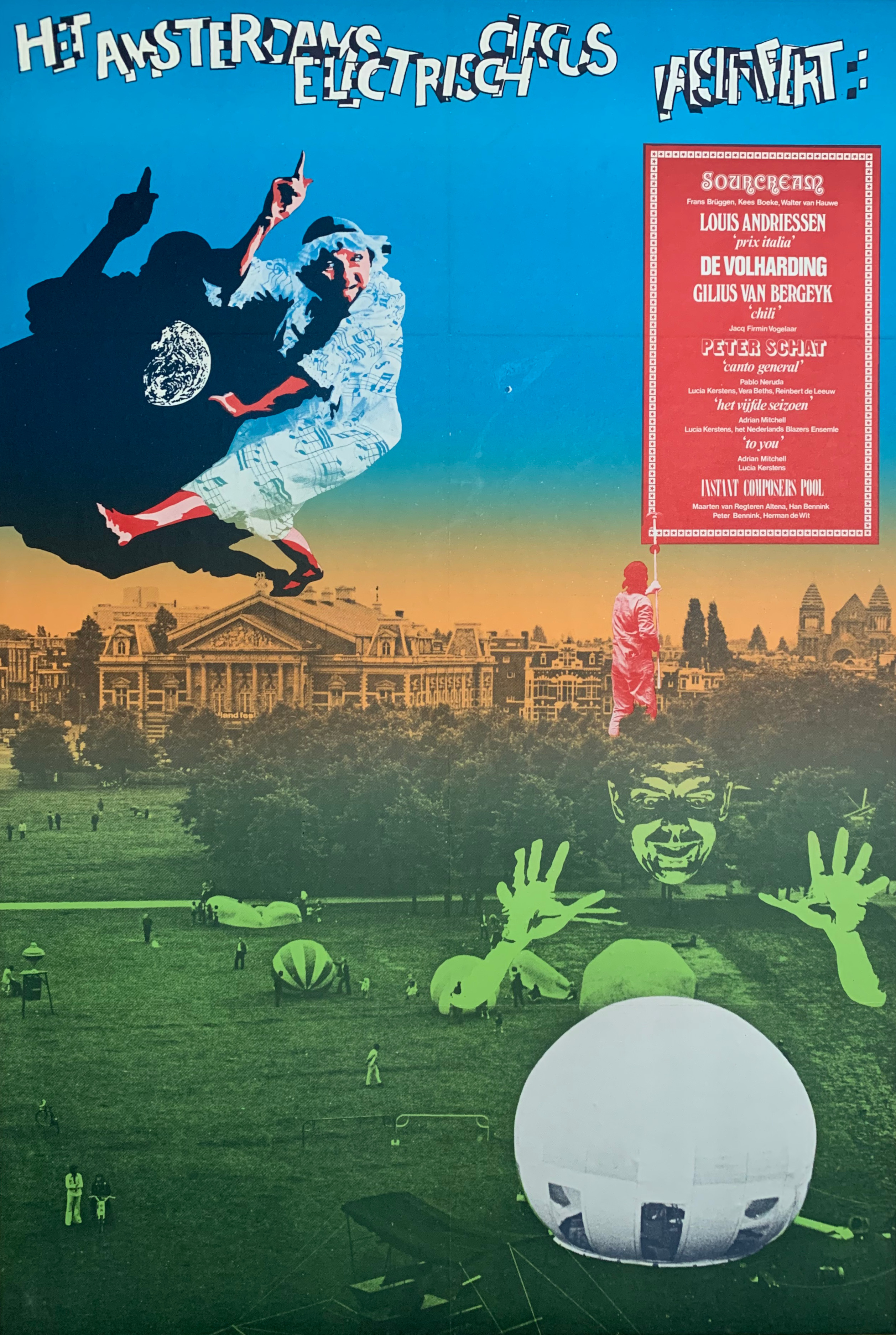
To You, Holland Festival, Museumplein, 1973.
Poster: Amsterdams Electrisch Circus
mathematics of a spinning top
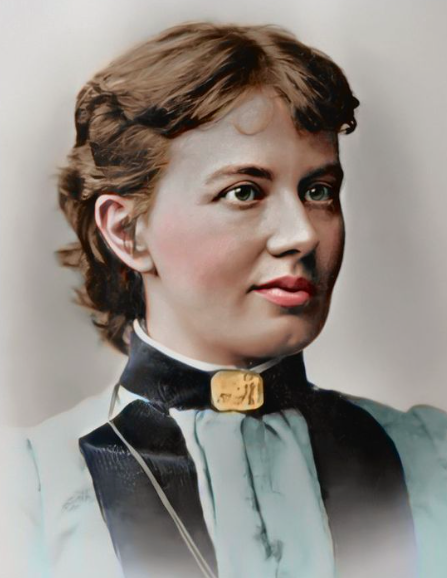
'Kowalevski solved a recalcitrant problem involving the mathematics of a spinning top'
Overlooked or forgotten accomplishments by women mathematicians are a recurring theme. There is a chapter on Sophie Kowalevski, a 19th-century Russian who became the first woman math professor, in Sweden. Employing methods that no one before her had thought of using, Kowalevski solved a recalcitrant problem involving the mathematics of a spinning top. The French Academy of Sciences heard of her work and, hoping to have her submit it, framed its annual prize in 1888 around the spinning top problem. Kowalevski missed the deadline, and so the academy extended it by three months. When the judges gave her the prize, they increased the award money by nearly half, a rare example of a woman mathematician being favored by and above male colleagues.
Read more:
THE SECRET LIVES OF NUMBERS: A Hidden History of Math’s Unsung Trailblazers | By Kate Kitagawa and Timothy Revell